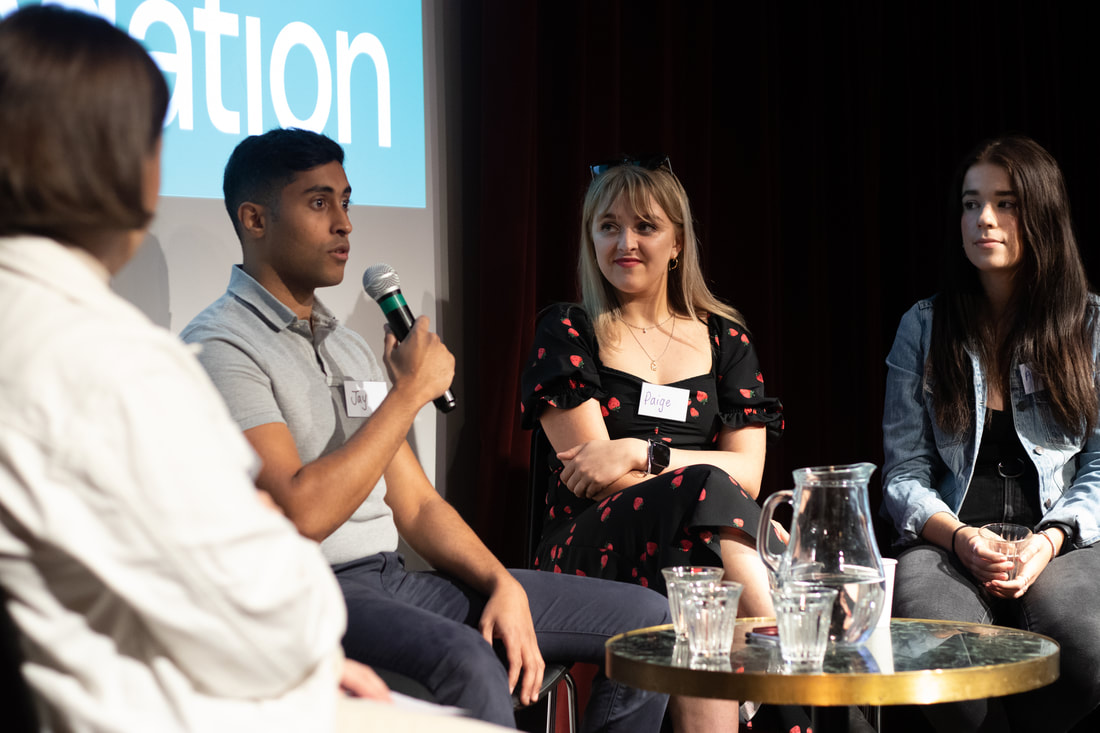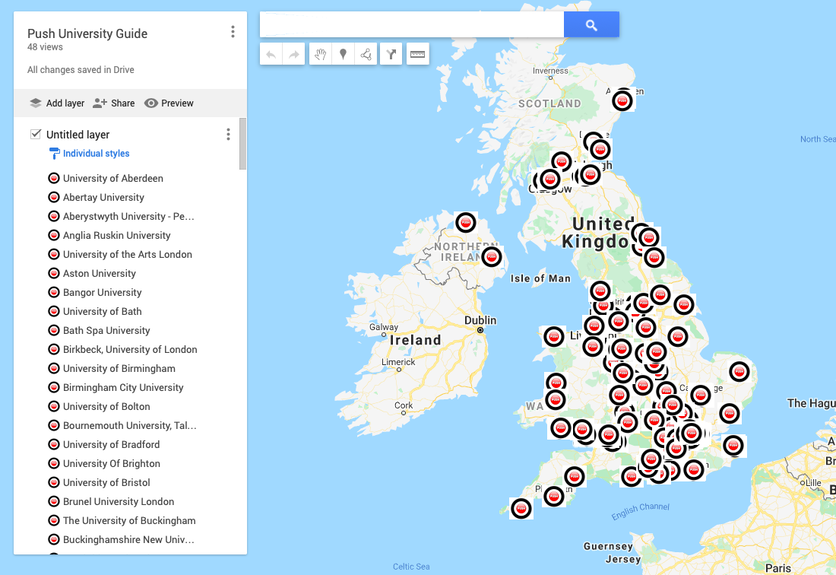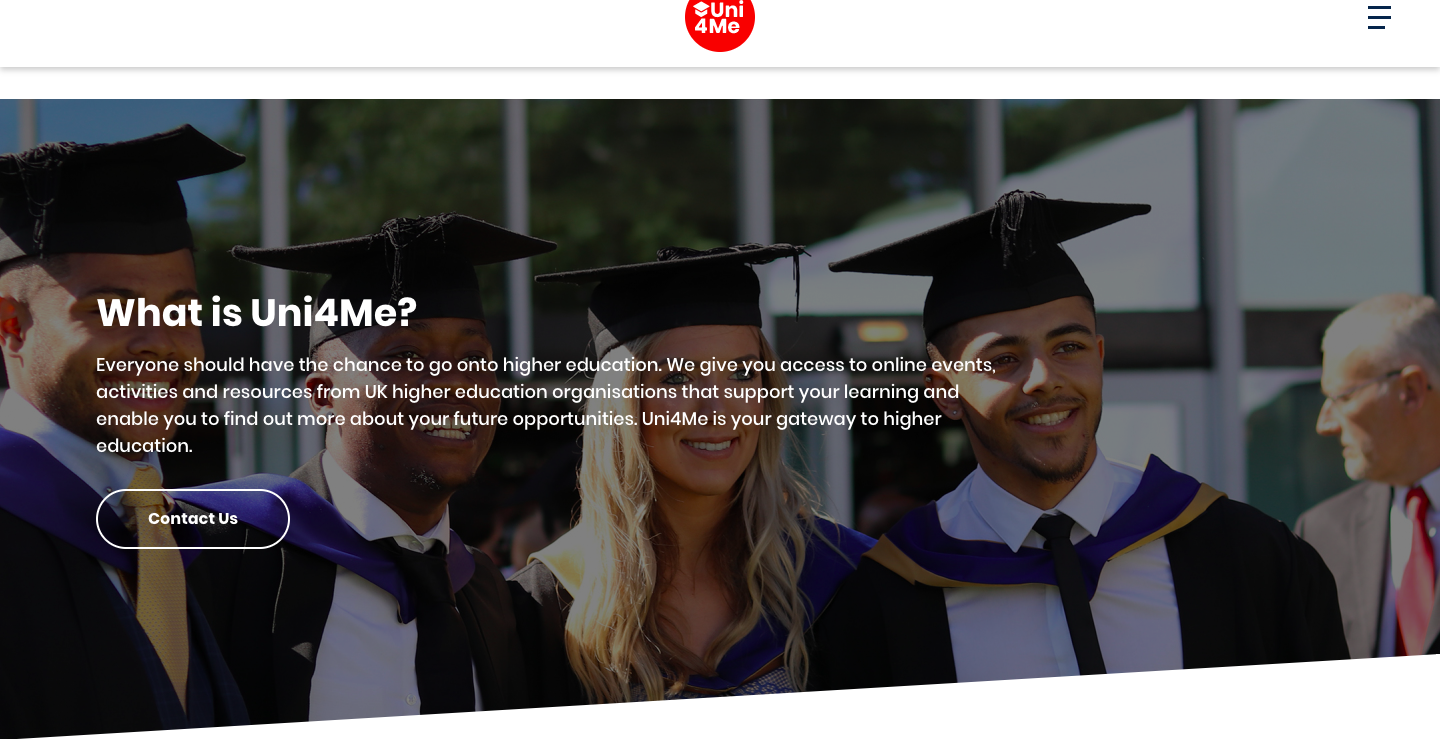|
It’s a new year, and you might have exciting new plans – perhaps you’re going to follow Tiffany’s advice and start a ‘passion project’ - but if you are hoping to go to Uni, perhaps you need to finish off your UCAS application, or maybe, you need to start it.
0 Comments
With the crispness of a new year, most of us rush to resolutions. Yet, perhaps a slower-can-do-attitude will work better?
If you've already completed your Uni applications, don't start doubting yourself now. Tiffany explains how to find confidence in yourself, build on what you already know and prepare for the next stage... interviews.
Hello, we’re the Unite Foundation and we offer a University Scholarship, specifically for care leavers/care experienced people (if you go to university in Scotland) or young people estranged from their family. We’ve included some definitions at the bottom of this blog to help explain what we mean!
It’s a new year – which opens up the opportunity to take new perspectives about learning, education and your experience at sixth form. Namely, how you can go beyond the curriculum and enhance your (A-level) studies. An important part of the UCAS process is demonstrating a passion for your subject, including having evidence of extended knowledge which goes beyond the curriculum. I’m going to give you a breakdown of how you can start to explore your subjects, allowing you to develop both your interest and your subject knowledge.
If you're a student who loves theatre, getting into a theatre school can be an exciting prospect. It's not easy. There are several factors to consider when choosing which theatre schools to apply to and preparing for the auditions, so take the time now to make sure your application is as strong as it can be.
What is employability? Well, break it down. Which two words can employability be split into? In the simplest sense it is your ability to be employed. The Oxford Dictionary definition of ability is ‘the fact that someone or something is able to do something;’. There are hundreds of different factors that make up this (and your unique) ability – far too many for me to list here – but that’s the point of this article.
The personal statement is a symbol of that nerve-wracking transitory period between school and university, amongst opening your student bank account, visiting open days, and the tingling anticipation of Fresher’s Week on the horizon. Written by every sixth form student as a precedent to CV writing, it urges them to express their interest in their course, the institution, and what exactly they have to offer themselves.
Thanks to significant growth in the e-learning industry over the past decade, it's now possible to learn almost anything online. As an avid consumer of online courses for business and pleasure, I wanted to share some of my favourite resources for studying remotely. But first, let's look at five practical reasons why you should consider taking online courses.
Reality check, maybe you haven’t been having the best summer ever. Maybe you feel like you’ve got tight knots in your stomach every time you think about the future. Maybe butterflies flutter in your stomach every time somebody mentions ‘grades’, ‘apprenticeship’ or ‘university’. Results day is August 10th and it couldn’t have been further away. It’s hard for this empty time in the no man’s land of uncertainty to be liberating or enjoyable to anybody.
Unless you’ve managed to live in a blissful oblivion in a great summer of forgetting results day, you’ll probably be finding it hard to distract yourself from this dawning anxiety… how can the outcome of two hard years of work be all over in less than a month? Will I even be ready to move on? How do I trust my grades will be right? And, the big one. What will I do if I don’t get what I need? It’s June, which is a horrifying thought – the longest day of the year is less than a week away! But other than existential angst, June also means that Universities are opening for applications. And they want applications. Your application.
There’s over 150 Higher Education Institutes in the UK and they offer around 100,000 courses. The choice is absolutely staggering and it’s very easy to get overwhelmed when choosing a uni. The resources that exist to help you choose are often just as bad – league tables with dozens of categories; you might in interested in knowing a university’s research quality but what does a research quality of 3.34 mean? The 18th May is when you’re able to register and start your application to begin your undergraduate degree in 2022 ready to submit it from September 2021.
Now while the actual date you’d be starting seems like a lifetime away - If you could call 16 months a lifetime (and a quick internet search tells me that only some rodents can). It is never too early to start taking a look at two things. What you want to study and where you want to study it. The two things are equally as important in your decision-making process so let’s take a look at each and what kind of questions you should be asking yourself as you begin to put together your UCAS application for next year. University admissions are something that the majority of us would agree should be a straightforward and fair process but it isn’t always clear (and is a topic up for debate) on how fair that process is currently.
What should be considered in a university application? Well the most obvious is the grades of the applicant, a clear indication of academic ability, but is that all admissions should be judged on? After all, everyone has their own barriers to face in life. At Push we love talking about building resilience from your setbacks and using these as a positive element to your self development. The argument is that these barriers are something that should be considered by universities during admissions. A report by the Nuffield foundation found that, selective universities are increasingly taking into account socioeconomic and educational contexts in which applicants achieved their grades but Vikki Boliver of Durham university argues that universities must be even bolder in their admissions process to ensure that students from disadvantaged and under-represented backgrounds are able to access higher education. If you've decided you want to go to uni, then we're going to go ahead and assume you're feeling pretty smug and have already submitted your application. If you haven't, then you've got about four weeks till the January 15th deadline.
So between now and then, stop dreaming of a vaccine Christmas and dream instead about where your chosen degree might take you. October 15th is the deadline for applications to Oxford, Cambridge, medicine, dentistry and veterinary science courses. This is not a seriously-ill-line or near-death-line, it is a deadline.
If you miss it, you'll have to wait a year to apply again. If you’re thinking about applying to these courses I’m sure you’re already done most of the legwork for your application. If you're not ready yet, then switch off your phone, dust off your laptop and let your mum know she’s on coffee duty for the next 24 hours solid Is it time to start thinking about which university you might want to go to?
Well fear no more! Over the past few months we’ve had a go at making a handy map for you that outlines as many universities in the UK that we could throw our hat at. Click here to have a look at the list of universities on offer with links to their location, websites and a little of our honest Push info too. If you’re part of a university or college that isn’t on the map and would like to be included. Please email at [email protected] and we can get it added to the map. Work experience: cancelled. Taster days: cancelled. University open days, you guessed it... cancelled.
Sinking into the sofa, many have felt like the whole of higher education is getting cancelled. Six months into lockdown, however, you start to realise that the world is actually at the tip of your fingers. We are the generation of technology. The generation of endless screening. Even though work experience for many is cancelled, when a global pandemic forces us indoors, we’ve never felt more at home. Fair Access Coalition and the Fair Education Alliance: Statement regarding A-level grade allocations14/8/2020 A group of leading educational access charities and not-for profit organisations is calling for the government to take action to ensure that young people from less advantaged backgrounds do not face additional barriers in accessing further study, training and employment opportunities, following the allocation of A-level grades this year.
We recognise that the circumstances surrounding this year’s A-levels made any ideal outcome impossible, but it is clear that – in a significant number of cases – individual students have been left with their future plans in disarray. What’s more concerning is that many of these students are from the least advantaged backgrounds. These are the young people who already face the biggest barriers in accessing higher education; barriers that have been compounded during lockdown. Every hour, we are encountering more young people whose plans for university, apprenticeships or jobs have been seriously affected because they were statistical exceptions. We note that Ofqual's Technical Report details that the A/A* attainment gap between FSM and non-FSM students increased from 6.1% in 2019 to 7.1% in 2020, reversing progress made the prior year. Furthermore, independent schools saw a 4.7 percentage point increase in A/A* grades compared to just 0.3pp at Sixth Form/FE/Tertiary colleges. As coalitions, working collaboratively to tackle educational inequality, our priority is to focus on how we, and the government, can best support young people. We call upon the government to ensure that no student, particularly those from disadvantaged backgrounds, has their opportunity of work, training or study compromised by being graded unfairly by an algorithm. We urge the government to do this by:
Signatories Nathan Samson, CEO, The Access Project, [email protected] Anne-Marie Canning MBE, CEO, The Brilliant Club, [email protected] Laura Gray, CEO, Brightside, [email protected] Sam Holmes, CEO, Causeway Education, [email protected] Maria Neophytou, Interim CEO, Impetus-PEF, [email protected] Rachel Carr OBE, CEO, IntoUniversity, [email protected] Johnny Rich, CEO, Push, [email protected] John Craven, CEO, upReach, [email protected] Rae Tooth, CEO, Villiers Park Education Trust, [email protected]. Sam Butters and Gina Cicerone, Co-CEOs, Fair Education Alliance, [email protected]. On social media: #coalitionforfairness "The standard of the delivery (online) was excellent...pass on my regards and thanks to @AronTennant @mojtaylor. It was definitely useful and I think it will have hit on a number of different levels from being informative of what opportunities they have around them to a more personal level of who they are and can be. It was a pleasure to be part of." - Mike, Bedlington School
Are you heading to university? I'm sure you have a few questions about what awaits you... Push has been flexing our broadband muscles (it's either that or real running) with a host of interactive online sessions for students, over summer term - to 1,000s of young people across the UK. If you missed out, then chill (we mean it, it's baking out there). We've selected some of the most interesting (and useful) questions we've been asked by year 11-13s, regarding the HE Experience... "The standard of the delivery (online) was excellent...pass on my regards and thanks to @AronTennant @mojtaylor. It was definitely useful and I think it will have hit on a number of different levels from being informative of what opportunities they have around them to a more personal level of who they are and can be. It was a pleasure to be part of." - Mike, Bedlington School
Are you thinking of doing a degree? Well the summer is a great time begin researching courses and universities. Push has been flexing our broadband muscles (it's either that or real running) with a host of interactive online sessions for students, over summer term - to 1,000s of young people across the UK. If you missed out, then chill (we mean it, it's baking out there). We've selected some of the most interesting (and useful) questions we've been asked by year 11-13s, on applying for a degree... August brings along results day but this year…it’s all different.
Exams were cancelled due to the pandemic and now grades have been calculated differently, it’s created a lot more of uncertainty and anxiety about getting into your dream universities. You might feel a little hard done by that you haven’t had the chance to stake your claim for a place at the university you wanted and that you’ve lost control over your future a little. But don’t worry, that’s not the case. Experts at a number of universities have all agreed that students have “never had more power to talk their way into a top university, even if they didn’t get the grades” But how? If you could sum up the lockdown so far in one word, what would it be? Sleep? Anxiety? Exams?
Furlough? I mean, who honestly knew that word before 21st March 2020? That'll make your Scrabble options a little easier from now on. For students, schools, unis and employers, we'd choose the word 'adaptation'. We've all had to do it right? Whether it be our revision schedule, our internet data bill (don't even...) or our tears over the lack of Premier League football...there's been a coin flip on what we deem 'normal', and it will be a while before we get things back to what they were pre-lockdown. We know how tempting it might be given the current situation, to accept any unconditional offers you might be receiving from your university choices. The Government did actually put a temporary ban on universities offering unconditional offers (although this has now been lifted) to try and ensure these weren’t getting given out en-mass when exams were cancelled and floods of panicking students would then be accepting choices that may not be right for them.
And at Push that’s our mission. To make sure the decision you’re making is the right one for you. Not anybody else. You might have heard the Prince’s Trust’s name thrown about before, but who are they and what do they do?
According to their website, the Prince’s Trust is a charity set up by Prince Charles over 40 years ago with the mission ‘to help young people transform their lives by developing the confidence and skills to live, learn and earn.’. The charity helps school leavers and young people to develop their soft skills, get additional training and provides tips and resources on getting a job. For the budding entrepreneurs among us, they also offer training, mentoring and funding to help you start your own business. New analysis has found that in the last five years, two thirds of colleges and universities have seen an increase in their dropout rates.
One of the reasons stated could be the drive to widen applicants to universities with institutions said to be admitting students who ‘aren’t able to cope’. While Push doesn’t necessarily think it’s a bad idea to allow as many people to get to University and follow their ambitions if they want to, we certainly think you should do your research before you decide if it’s the route for you. |
This section will not be visible in live published website. Below are your current settings: Current Number Of Columns are = 1 Expand Posts Area = Gap/Space Between Posts = 15px Blog Post Style = card Use of custom card colors instead of default colors = Blog Post Card Background Color = current color Blog Post Card Shadow Color = current color Blog Post Card Border Color = current color Publish the website and visit your blog page to see the results Categories
All
We're always interested to hear from talented young writers, so if you'd like to feature as a guest author then hit us up for more details.
|
Student blog: What's new?
Author
Write something about yourself. No need to be fancy, just an overview.
This website uses marketing and tracking technologies. Opting out of this will opt you out of all cookies, except for those needed to run the website. Note that some products may not work as well without tracking cookies.
Opt Out of Cookies























 RSS Feed
RSS Feed